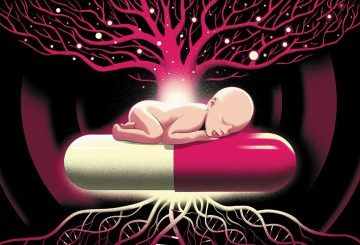Sarah Franklin in Nature:
 In the autumn of 1869, Charles Darwin was hard at work revising the fifth edition of On The Origin of Species and drafting his next book, The Descent of Man, to be published in 1871. As he finished chapters, Darwin sent them to his daughter, Henrietta, to edit — hoping she could help to head off the hostile responses to his debut, including objections to the implication that morality and ethics could have no basis in nature, because nature had no purpose.
In the autumn of 1869, Charles Darwin was hard at work revising the fifth edition of On The Origin of Species and drafting his next book, The Descent of Man, to be published in 1871. As he finished chapters, Darwin sent them to his daughter, Henrietta, to edit — hoping she could help to head off the hostile responses to his debut, including objections to the implication that morality and ethics could have no basis in nature, because nature had no purpose.
That same year, Darwin’s cousin Francis Galton published Hereditary Genius, a book that recast natural selection as a question of social planning1. Galton argued that human abilities were differentially inherited, and introduced a statistical methodology to aid “improvement of the race”. Later, he coined the term ‘eugenics’ to advocate selective reproduction through application of the breeder’s guiding hand.
Darwin’s transformative theory inspired modern biology; Galton’s attempt to equate selection and social reform spawned eugenics. The ethical dilemmas engendered by these two late-nineteenth-century visions of biological control proliferate still. And, as older quandaries die out, they are replaced by more vigorous descendants. That there has never been a border between ethics and biology remains as apparent today as it was 150 years ago. The difference is that many of the issues, such as the remodelling of future generations or the surveillance of personal data, have become as everyday as they are vast in their implications. To work out how to move forward, it is worth looking at how we got here.
In the late nineteenth century, like today, society was in upheaval and science was on a roll.
More here.
